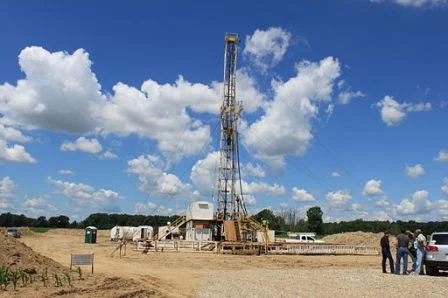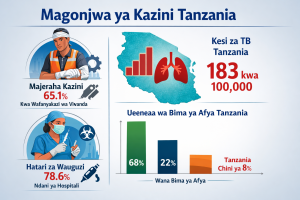
East Africa must prioritize localized energy solutions amid global chaos
EA in the Global Context
Every passing day spells a new conflict across the world, with the potential for further trade complications. Russia’s armed conflict with Ukraine has caused colossal damage to the global energy supply, leading to almost uncontrollable inflation in many countries. Russia accounts for a significant chunk of crude and refined oil consumed globally, at 13% and 11%, respectively. As a member of OPEC+, the Russian state has a significant muscle in deciding how the global oil trade goes. However, before we could make sense of the Eastern European war and its impact on global trade, another conflict broke out between Hamas and Israel, and a much more dangerous one could soon ensue in the South China Sea as China continues to seek reunification with Taiwan. While the world falls further into conflicts, can East Africa devise a local energy solution to power its economy?
Despite the economic setbacks in other African countries in 2022, East Africa grew significantly against all odds. To maintain this growth, the region must embark on a plan to self-sustain in terms of energy sources. The East African community is a much bigger family now, with seven states spanning from the Indian Ocean to the Atlantic. By sheer size, vast resources, and manpower, the region is supposed to be a self-reliant power. However, for this block to grow stronger, its factories and businesses must be powered by locally produced energy.
The potential and challenges
Although climate change policies grow ever stronger in stifling oil consumption, most developing countries still find no reliable solution to their raw, hungry economies in need of a push to greater growth. Oil discoveries are no longer encouraged globally, as developed countries preach a transition to a green economy going forward. Nonetheless, developing countries have not stopped dreaming as they foresee a future where they become oil and gas exporters.
“Despite the unquestionable optimism in the latest discoveries and the future they hold, the road to East African energy independence is still bumpy.”
East African oil reserves discoveries signal significant optimism, with Uganda sitting on 6.5 billion barrels of oil (1.4 billion recoverable), Kenya housing 4 billion barrels (750 million economically recoverable), and South Sudan already producing 156,000 barrels a day with an estimated 3.5 billion barrels in her reserves. For context, EA consumes around 18.5 million metric tons annually (over 135 million barrels). Therefore, if the countries can find a way to use their oil for local consumption, current and future discoveries can sustain the region’s oil needs for years.
Oil aside, Tanzania’s main energy discovery came in the form of natural gas. About 57 trillion cubic feet of natural gas were discovered on the shores of the Indian Ocean, with 43 trillion of those ready for economic recovery. Arrangements to export natural gas to Kenya and Uganda have been mooted already, pointing to a more symbiotic relationship between the traditional eastern Africa partners. With the oil pipeline from Uganda to Tanzania already underway and gas deliveries from Tanzania on the horizon, East Africa could soon get some relief from high energy bills, slowly getting away from overreliance on foreign supply chains.
Despite the unquestionable optimism in the latest discoveries and the future they hold, the road to East African energy independence is still bumpy. The region has no joint energy policy that could help shape future dealings, and that alone is a minus. Without a policy, each member state makes decisions based on individual national interests rather than a united front. In the midst of uncoordinated planning, none of the region’s oil producers refines oil locally – all plan to continue the poverty circle of exporting crude and importing refined oil. From Kenya’s first shipment of crude oil in 2019 to Uganda’s ambitious pipeline project, the focus is on exporting first. Could Uganda’s plans for building a refinery plant reorient the trend? That would save millions of dollars in importation of refined oil.
Amid East Africa’s struggle for economic self-determination, Climate change appears to be another obstacle on the horizon. Global players have already raised concerns about the East African Oil pipeline project, pointing to adverse climate effects. If East Africa listens and obeys, it will continue to depend on the unreliable global trade dynamics for decades since green energy still looks like a difficult bet. East Africa must find a way to navigate through the excitement of their economic potential and the challenges that loom larger by the day. The block might learn a few lessons from Germany and Japan, two of the highly industrialized countries reviving coal as a source of energy amid resistance from climate change activists. This could be reason enough for Kenya and Tanzania to utilize their own significant coal reserves for economic growth in a purely nationalistic approach to growth.
Where do we go from here?
Many political and natural challenges stifle the economic growth of the East African states. While its potential shows the green light for future energy independence, global politics and climate change issues add to existing regional roadblocks to further limit these young, ambitious economies. The future of the East African integrated economy depends on the availability of reliable energy produced within the block. If Uganda’s and Kenya’s oil is refined internally and supplied across the member states, businesses will grow two-fold in the future decades. A reliable supply of cheap oil, Tanzania’s natural gas, and potential nuclear energy in all three countries will ease manufacturing costs, lower inflation, and boost the region’s economy.
While global conflicts may not end any time soon, East Africa must chat its way out of the global energy crisis. An integrated energy production and supply system is required if the region plans to outgrow its current economic limitations. The Russo-Ukrainian war has reminded everyone that energy independence keeps you afloat in times of war. East Africa must turn to its oil, gas, and other resources that can power its economy without having to wait for tankers to dock from abroad.



